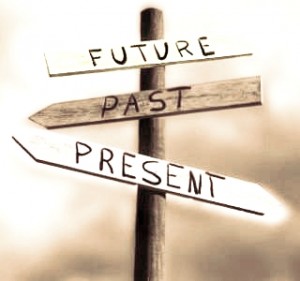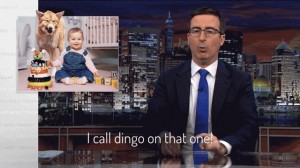“Some golfers hardly gung-ho about chance to win Olympic gold,” read a recent headline in the Chicago Tribune. It’s a common enough expression — gung ho — in both American and British English, meaning “unthinkingly enthusiastic and eager, especially about taking part in fighting or warfare” (OED). But it recently occurred to me that being a phrase of Chinese origin, gung ho is fairly unusual in its etymology: I can’t think of many other words or phrases that English has borrowed from that language. So I did some digging … Continue reading
Category Archives: Language
Writers on the art of writing
To celebrate our 500th post, Glossophilia offers 50 pearls of wisdom — from the witty to the wise — on the craft of writing from some of its greatest masters. Continue reading
Demanning our language
The National Association for Equality in the Workplace (NAEW) has announced an ambitious and somewhat controversial initiative — in cooperation with the US English Teachers Coalition — to remove “hot button” gender phonemes from standard American English over the next five years, ensuring that our vocabulary no longer contains gender-suggestive syllables or spellings. The NAEW launched the campaign today, explaining its 62-month goal to “de-gender” our lexicon by July 2020 — allocating five months per letter of the alphabet to phase out gender-suggestive words, with an extra couple of months built in to address the large percentage of male-dominant “m” words. Continue reading
In the news … (Feb 27)
TGIF. Language and usage in the news this month: confessions of a comma queen; the possible death of “uh”; a town torn apart by an apostrophe; the mid-Atlantic language mash-up; some non-translatable idioms; what your pronunciation says about you; and a critique of Wikipedia’s grammar vigilante. Continue reading
Slang: the most esoteric and quintessentially human form of language?
Why do we talk slang? Is it like an inside joke, which makes us feel more connected with others in the know? Is it useful for covert communication, to hide wrong or bad stuff from prying ears? Are slang words and expressions the equivalent of linguistic toys, injecting some fun and humor into our normally drab verbal discourse? Can it fulfill a need for verbal economy, providing one word or phrase to capture a paragraph’s worth of meaning and suggestion? Can slang be a proverbial ice-breaker, offering a sense of informality or even affection to an otherwise frosty exchange?
The answer is yes: any one of these factors can come into play when slang is on the linguistic menu, and some of these factors are at the heart of a particular slang’s very existence. Slang in its many forms can represent the most nuanced, potentially ambiguous, socially delicate and subtle of human utterances, depending as much as it does on the social context and culture in which it lives and thrives.
A fascinating article in The Guardian last year asked the question: Is slang the last frontier for artificial intelligence? Continue reading
Icelandic fare from Icelandair
TGIF: That Gerund Is Funky (Sep 26)
TGIF. In language and usage news this fortnight: a school that teaches in Manx Gaelic; an emergency poet; costly slips of the tongue; zombie nouns; an ominous auto-correct error; punctuation problems in a pre-K campaign; and can Benedict Cumberbatch not say penguin? Continue reading
TGIF: That Gerund Is Funky (Sep 12)
TGIF. In grammar, language and usage news this fortnight: the uber-ubiquity of uber; what little words reveal about us; how economic development is driving the extinction of languages; and who was it that made up the word supercalafragilisticexpialidocious?
* * *
In what some might call an ironic twist of fate, the ride-sharing company Uber faces a ban on one of its services in the country from which the company gets its name: Germany. Linguist Ben Zimmer talks in the Wall Street Journal about the growing ubiquity of uber: it’s uber all of us — and not just in the word’s native land.
* * *
Our use of little words can reveal hidden interests. James Pennebaker, a psychologist interested in the secret life of pronouns, has recorded, transcribed and analyzed conversations that took place between people on speed dates. “We can predict by analyzing their language, who will go on a date — who will match — at rates better than the people themselves,” he says. And he found that “when the language style of two people matched, when they used pronouns, prepositions, articles and so forth in similar ways at similar rates, they were much more likely to end up on a date.” NPR reports how our use of little words can, uh, reveal hidden interests.
* * *
Economic development is driving the extinction of some languages, scientists believe. A study has found that minority languages in the most developed parts of the world, including North America, Europe and Australia, are most at threat. The researchers found that the more successful a country was economically, the more rapidly its languages were being lost. The BBC reports.
* * *
Was the word supercalafragilisticexpialidocious really made up by the Mary Poppins writers? According to mental_floss, there were others who claimed ownership. “Though the Sherman Brothers claimed they made the word up themselves, a 1949 song called “Supercalafajaistickespeealadojus” would seem to say otherwise. The writers of the song, Barney Young and Gloria Parker, sued for $12 million. They lost because lawyers were able to present evidence showing that the nonsense word had been around, in some form or another, for decades. Indeed, the Sherman Brothers later claimed that their made-up word was a variation on a similar word they had heard at summer camp back in the 1930s: ‘super-cadja-flawjalistic-espealedojus.'”
* * *
Another word, knish, was explored on WNYC’s Brian Lehrer Show a few weeks ago.
The perfect present
We often beat ourselves up about living too much in the past or the future and not “living in the moment”. But it’s interesting to see that we speak and write in the present tense more than we probably realize …
In my work as a publicist, I’m often talking and writing about things that will happen in the future: a work that is going to be performed or premiered, a CD scheduled to be released, an award to be bestowed. But nowadays — in this age of low attention spans and instant gratification — everything has to sound imminent or immediate in order for it to receive attention or make any impact. So we talk in the present tense — even about the future: “She sings next month”; “he releases the CD in October”; “he opens the Met’s season in 2015”. A press release written strictly and entirely in the future tense, using a lot of wills, would be tiresome indeed: as well as being more removed in time, it is necessarily more wordy and repetitive. Snappy it certainly isn’t.
As well as its sense of immediacy, the present tense has the advantage of linguistic expediency. English speakers don’t have the choice of simple future conjugations the way the French and others do (“j’irai demain”); officially we’re meant to employ extra words (in this case modal verbs) in addition to the main verb to indicate the future: “he will sing”, “the label is going to release a CD”. Our conjugated present tense is much shorter: “he sings”; “the label releases”. But thankfully for us marketeers, and confusingly for anyone trying to learn English as a foreign language, we actually do use the present tense — in common standard and not just colloquial English — to talk about the future, especially if we’re discussing something that is happening [there it is again — ed.] fairly reliably or imminently: “I’m having dinner with him tomorrow”, “he’s giving a speech next week”, or “the bus leaves at 3 in the morning”. Try explaining that rule to a non-English speaker …. Continue reading
In the news … (Aug 13)
TGIF. Language and usage in the news this fortnight: this year’s new legit words — both in life and in Scrabble; the controversy over Sanskrit; baby talk — in humans and turtles; John Oliver’s new phrase goes urban; and what’s in a name – your name? It might be more important than you think …
* * *
Oxford Dictionaries have added some new words to the dictionary, including YOLO, amazeballs, and binge-watch. Time has the adorbs story. And while we’re on the subject: Merriam-Webster has released a new version of the Official SCRABBLE Players Dictionary with 5,000 new words, added to reflect new trends, styles and facts of the 21st century. … Words like Continue reading









